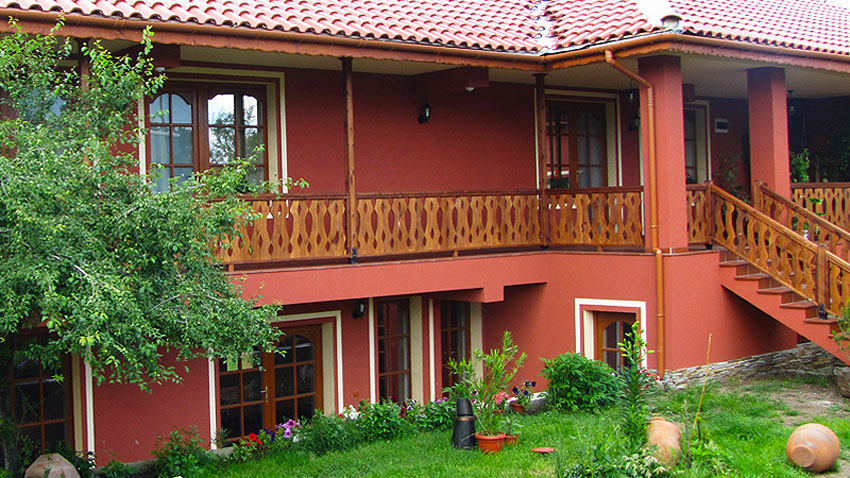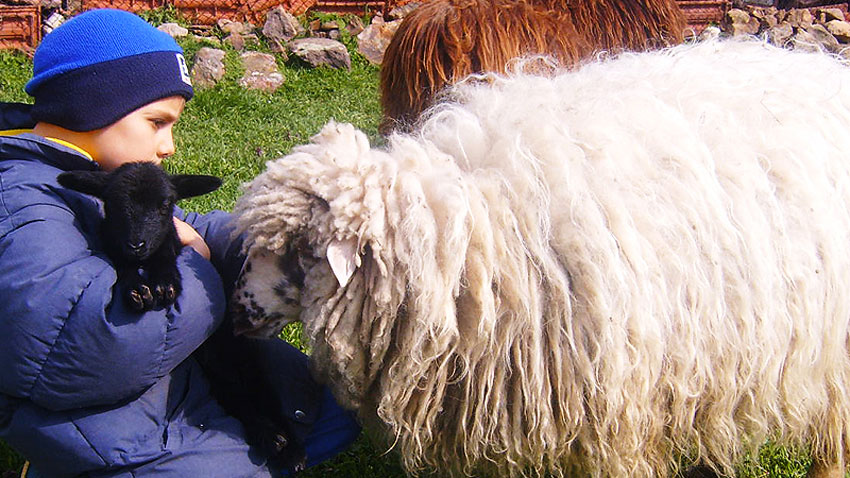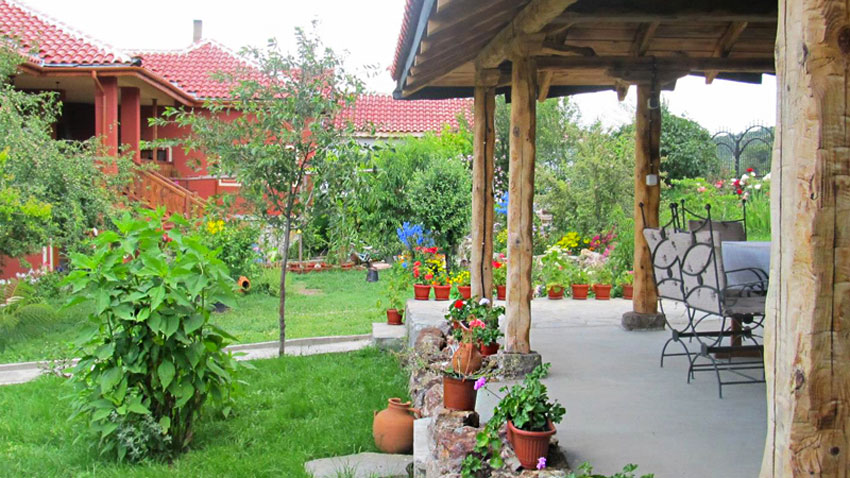Winter has once again surprised Bulgaria, freezing up its entire infrastructure. Thus people in many remote regions remained literally torn apart from civilization. Things are getting really worse when bread and food have to be provided to the population in small villages and towns.
However, the heavy winter causes no concern about the inhabitants of the Wild Farm in the village of Gorno Pole , Haskovo region. Nikolay and Betty Vasiliev have been preparing for this season as of springtime by collecting hay and making fodder for their cattle. They have some 600 cows, horses, sheep, goats and even an otter that opted to live with them on its own. Life at the Wild Farm is in harmony with nature and the land is generous to its hard-working owners.

The family of Nikolai Vasiliev opted for this kind of life more than a decade ago. Using his own hands the man restored an old family house which welcomes today tourists from across the country in summertime. However, winter is the best time for rest and care for the stock, Nikolai says and adds:
‘The day here starts long before dawn. My first job is to inspect the cows. It happens a calf to have appeared over the night right in the snow which means certain death. I must react. As animals are really close to each other sometimes one can fall over another. Cows leave the shed through the day, looking for water. They have two springs that I isolate over the night to prevent them from freezing. In daytime I spread hay on the snow and animals gather it on their own.’
 People from the Wild Farm are well-prepared for the winter – they say that the meat they produce is enough for half a town. Beans, cabbage, carrots and fruit trees are planted in the garden around the house. The climate is warm and temperatures in winter usually don’t remain below 0C for too long. However, this year is a bit different, as the cold weather lasts quite long with -17C or -18C.
People from the Wild Farm are well-prepared for the winter – they say that the meat they produce is enough for half a town. Beans, cabbage, carrots and fruit trees are planted in the garden around the house. The climate is warm and temperatures in winter usually don’t remain below 0C for too long. However, this year is a bit different, as the cold weather lasts quite long with -17C or -18C.
‘Winter started here end-November. The snow cover’s thickness right now is some 60 cm. It is not something unexpected. Moreover, this snow is really necessary for the soil and its irrigation. We need water in the rivers through springtime. Even now the grass is showing up underneath the snow as it is warm and wet there. We had almost no grass last fall – the summer was dry and hot. I hope that February won’t be that cold, in order for the grass to appear yet in March – we rely mainly on it to feed the stock. Last spring it would reach my waist. That helped us really a lot to get prepared for such a harsh winter. Nature prompts everything – I have learnt its lessons over those two decades.’

Nikolai is proud of his son who grows up among nature and has got used to work hard since early childhood. His body is strong due to the movement and exercise. Thus the young man is getting tough and confident in his own capabilities.
English version: Zhivko Stanchev
8 December is the day on which Bulgarian university students traditionally celebrate their holidays. The holiday is very popular in Bulgaria and often brings together not only current but also former students. The day was first celebrated in 1903..
Spicy means culture and Alexander Kyurkchiev - Sando, founder of a chilli pepper farm near Sofia and the first chilli pepper museum in this country, is sure of this. For the second year in a row he is organizing the Sofia Chilli Fest..
For more than a week now, the story of a family of breeders raising local breeds of sheep has captured the attention of not only the Bulgarian public, but also of compatriots abroad. Instead of following the drama in Parliament and the struggle for..
The making of knitted products is a traditional craft that deserves a revival and a new life, believes Alexandrina Pandurska, known for her numerous..

+359 2 9336 661
